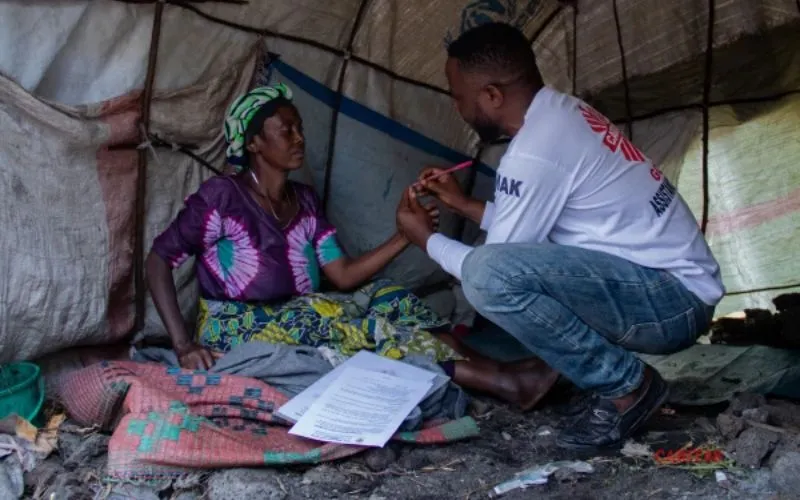 There are many displaced people in camps without electricity, water and food. Credit: Caritas Goma (Nord Kivu)
There are many displaced people in camps without electricity, water and food. Credit: Caritas Goma (Nord Kivu)
"If we propose this inclusive dialogue, it is precisely to avoid the globalization of conflict," he warned, and added, "The rebels are our brothers."
M23 rebels should not be seen only as enemies, since they are part of the community, Bishop Ngumbi went on to say, and added, "Even when we talk about the M23, the AFC or the government, we are all brothers. The young people of the M23 are young people from our neighbourhoods."
He emphasized the need to find ways towards harmonious coexistence, saying, "We must find a way for people to live together in happiness, not in conflict."
The Local Ordinary of Goma Diocese since May 2019 highlighted the deep interdependence between the peoples in the region as important. He said, "We are all brothers and sisters in this region. Just look at the relations between Rwandans and Congolese: marriages, economic exchanges...".
(Story continues below)
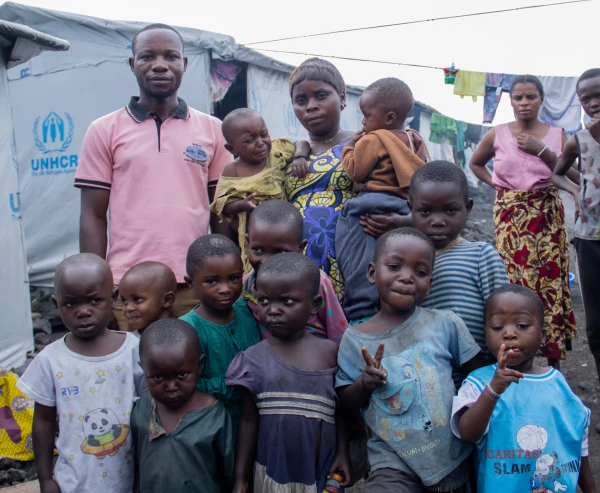 Goma airport remains closed, preventing humanitarian aid from entering. Credit: Caritas- Goma (Nord Kivu)
Goma airport remains closed, preventing humanitarian aid from entering. Credit: Caritas- Goma (Nord Kivu)
"It is important that our rulers and authorities sit down to negotiate and ask themselves what is not working. Why do we have to be at war all the time? It is urgent to restore peace in this region," he appealed.
The economic background of the conflict
Bishop Ngumbi is not unaware that behind Rwanda's support for the M23 there are economic interests, especially the exploitation of the abundant mineral resources of Eastern DRC.
"We cannot forget that the root of the conflict is, to a large extent, the exploitation of Congo's natural resources," he said.
The Congolese Catholic Bishop lamented the paradox that DRC, a country immensely rich in natural resources, has a population plunged into poverty due to violent conflicts. "It is a shame that we have such a rich country and such an impoverished population, precisely because of the conflicts," he lamented.
Displaced persons and humanitarian crisis
The M23 offensive has forced thousands of people to flee their homes. The rebels' capturing of Goma at the end of January also led to the departure of hundreds of aid workers, as many NGOs are based in the city.
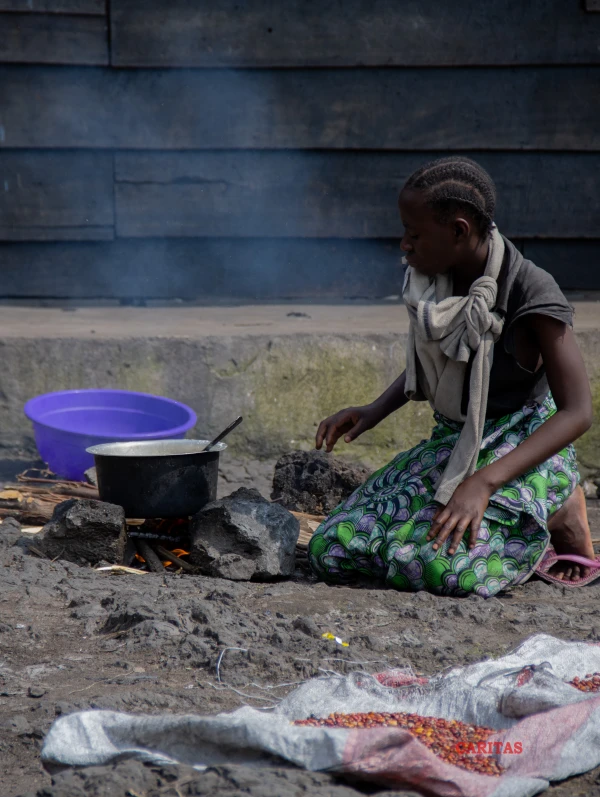 The M23 offensive has forced thousands of people to flee their homes. Credit: Caritas-Goma (Nord Kivu)
The M23 offensive has forced thousands of people to flee their homes. Credit: Caritas-Goma (Nord Kivu)
In makeshift camps, displaced people live in inhumane conditions. "They have no food or water because they had to flee with the clothes on their backs to save their lives," the Bishop of Goma said.
He has cautioned the international community against abandoning the Congolese people. He said, "This is not the time to leave us alone. It is time to be present with us. To those who have left, I ask you to return, in the hope that conflict will be a thing of the past and that we will move towards peace."
This story was first published by ACI Prensa, ACI Africa’s Spanish-language news partner. It has been translated and adapted by ACI Africa.
As a journalist, Victoria Cardiel has specialized in social and religious news. Since 2013, she has covered the Vatican for various media outlets, including Europa Press and Alfa and Omega, the weekly newspaper of the Archdiocese of Madrid.



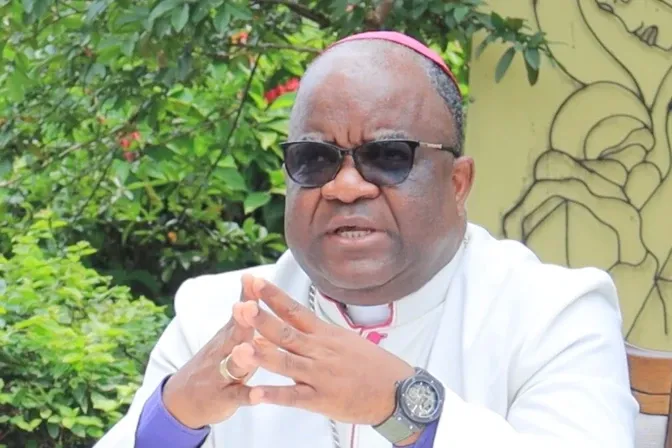
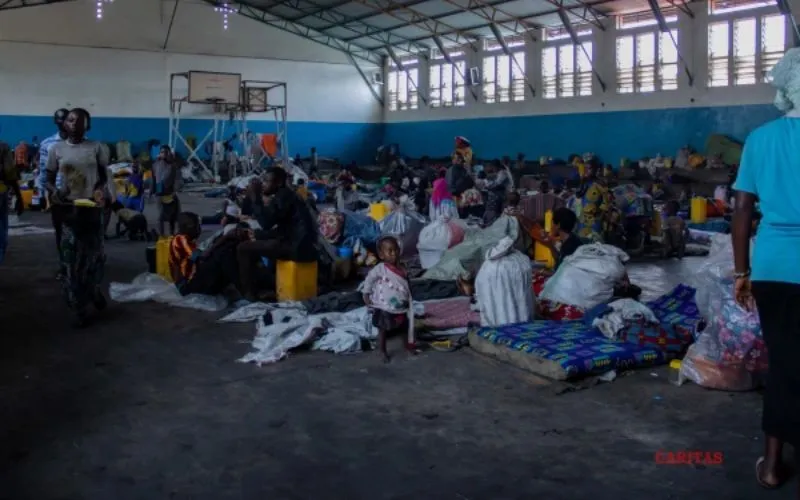 Displaced by the conflict take shelter in a school that has been left standing despite the bombing. Credit: Caritas Goma (North Kivu)
Displaced by the conflict take shelter in a school that has been left standing despite the bombing. Credit: Caritas Goma (North Kivu)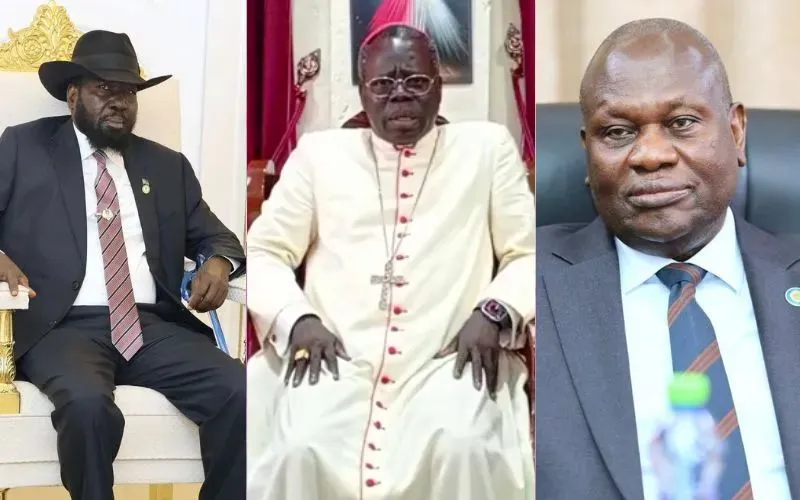
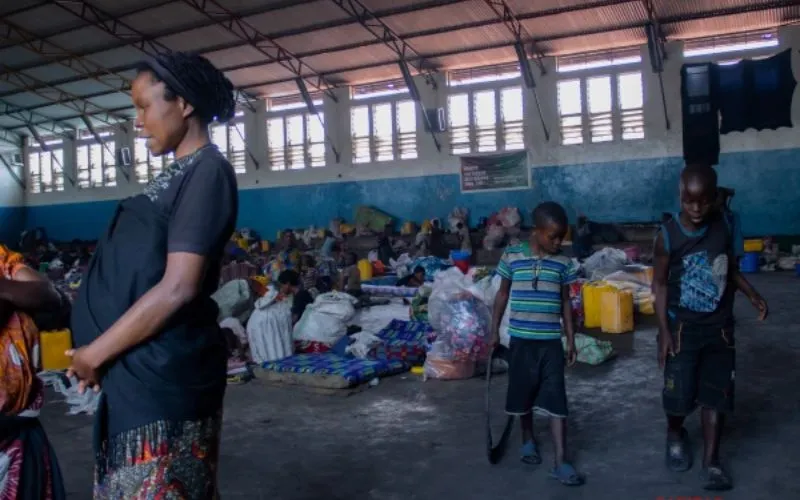 Thousands of people have lost everything because of the war. Credit: Caritas Goma (North Kivu)
Thousands of people have lost everything because of the war. Credit: Caritas Goma (North Kivu) There are many displaced people in camps without electricity, water and food. Credit: Caritas Goma (Nord Kivu)
There are many displaced people in camps without electricity, water and food. Credit: Caritas Goma (Nord Kivu) Goma airport remains closed, preventing humanitarian aid from entering. Credit: Caritas- Goma (Nord Kivu)
Goma airport remains closed, preventing humanitarian aid from entering. Credit: Caritas- Goma (Nord Kivu) The M23 offensive has forced thousands of people to flee their homes. Credit: Caritas-Goma (Nord Kivu)
The M23 offensive has forced thousands of people to flee their homes. Credit: Caritas-Goma (Nord Kivu)


